From the 4th to the 8th of April the artists Eric Ellingsen and Lynn Peemoeller visited Thessaloniki as a prelude of their residency in the city this summer. Their visit’s scope was to prepare the ground for their projects and recruit participants. During this week they had 17 meetings with 50 members of the local authorities, the university, and the professional community of the city. Their frantic visit was concluded with an inspiring lecture in the auditorium of GOETHE-INSTITUT, where they presented their past work and their aspirations about the Thessaloniki – specific work.
The artists’ projects share a common urge to induce social change. Launched from different starting points, the projects follow dissimilar trajectories. Ellingsen’s work resembling a philosophy treatise has as an epicenter the ways we perceive our world, while Peemoeller builds up her work from her solid experience in urban food systems. In this respect their courses are complementary.
In particular, Ellingsen’s project aims to create a workshop in progress: a workshop, which empowers participants and facilitates the development of their own platforms of change; a workshop that transcends the scope of an art project, to become a continuous social intervention within the city; a Radical Imagination Community. Central to these aspirations is collaboratory learning through doing. The artist engages the participants in an experiential negotiation with their perceptions and invites them in a dialogue about how these were solidified. The city is mapped through perception walks; walks that challenge the relationship with space, sound, time, movement, smell and that dissolve common logic experience. While the actions take place in a specific space, time, and institutional structure, they intend to generate a creative elusiveness that can bring different disciplines together in a common project. It is through this process that specific, yet fluid, the platforms of change will emerge. Nevertheless, the focus is on the process, the learning of learning, the weaving of knowledge bundles, how the question is framed not which answer is given. Platforms are an outcome, the conditions through which they emerge, the Community is the goal.
On another level, the work of Lynn Peemoeller writes an ellipse that has food and change as its two foci. Peemoeller’s engagement with the complex human-food system within and outside the urban environment informs her work. Food is not merely produced, consumed or enjoyed. Food in its totality and complexity is an integral part of the economic, ecological, social, anthropological, and artistic fields. In this respect food and change are complementary reflections. The project wants to bring together citizens with different background, illuminate food production, circulation and consumption practices, in an attempt to induce changes in the human-food system. The artist will activate public spaces by bringing forward the intimacy of the kitchen. Utilizing art as the social neutralizer, the project aims to develop a prototype of change for urban farmers, politicians, and citizens.
What is evident in both artists is their commitment to their projects and their actual willingness to induce change. This quality is what makes their work so relevant and interesting in the specific setting of Thessaloniki and Greece. Not only because for many within the Greek setting change lies in the conjunction of necessity and impossibility, but also because Greece has been tantalized by an economic depression, a refugee crisis and the rise of neo-nazis.
So far the projects have not traversed the city’s comfort zone. Most of the meetings had to do with well established institutions, the ones - it can be reasonably argued - that either place sand to the cogs of change, or through silent acceptance or support enable it. What will be more interesting would be the projects themselves - the magnitude and essence of their interventions, their relevance to the specific situation, the practical answers about how can be induced and more importantly about which change is induced - and how the city will react to them.
In particular, Ellingsen’s project aims to create a workshop in progress: a workshop, which empowers participants and facilitates the development of their own platforms of change; a workshop that transcends the scope of an art project, to become a continuous social intervention within the city; a Radical Imagination Community. Central to these aspirations is collaboratory learning through doing. The artist engages the participants in an experiential negotiation with their perceptions and invites them in a dialogue about how these were solidified. The city is mapped through perception walks; walks that challenge the relationship with space, sound, time, movement, smell and that dissolve common logic experience. While the actions take place in a specific space, time, and institutional structure, they intend to generate a creative elusiveness that can bring different disciplines together in a common project. It is through this process that specific, yet fluid, the platforms of change will emerge. Nevertheless, the focus is on the process, the learning of learning, the weaving of knowledge bundles, how the question is framed not which answer is given. Platforms are an outcome, the conditions through which they emerge, the Community is the goal.
On another level, the work of Lynn Peemoeller writes an ellipse that has food and change as its two foci. Peemoeller’s engagement with the complex human-food system within and outside the urban environment informs her work. Food is not merely produced, consumed or enjoyed. Food in its totality and complexity is an integral part of the economic, ecological, social, anthropological, and artistic fields. In this respect food and change are complementary reflections. The project wants to bring together citizens with different background, illuminate food production, circulation and consumption practices, in an attempt to induce changes in the human-food system. The artist will activate public spaces by bringing forward the intimacy of the kitchen. Utilizing art as the social neutralizer, the project aims to develop a prototype of change for urban farmers, politicians, and citizens.
What is evident in both artists is their commitment to their projects and their actual willingness to induce change. This quality is what makes their work so relevant and interesting in the specific setting of Thessaloniki and Greece. Not only because for many within the Greek setting change lies in the conjunction of necessity and impossibility, but also because Greece has been tantalized by an economic depression, a refugee crisis and the rise of neo-nazis.
So far the projects have not traversed the city’s comfort zone. Most of the meetings had to do with well established institutions, the ones - it can be reasonably argued - that either place sand to the cogs of change, or through silent acceptance or support enable it. What will be more interesting would be the projects themselves - the magnitude and essence of their interventions, their relevance to the specific situation, the practical answers about how can be induced and more importantly about which change is induced - and how the city will react to them.

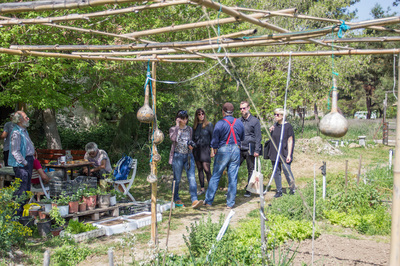
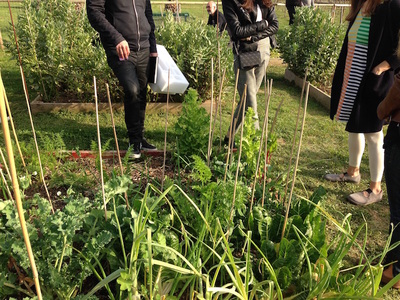
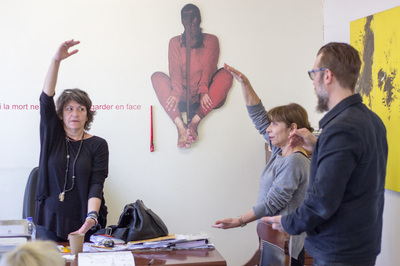
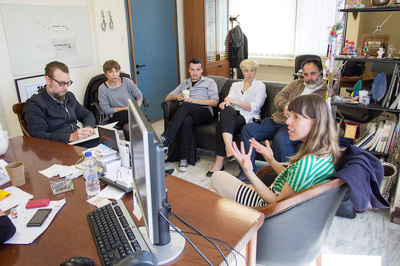
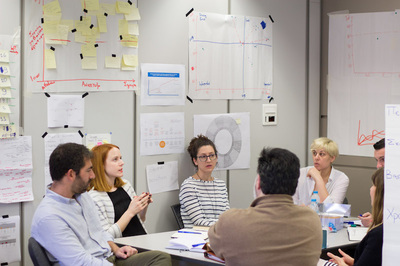
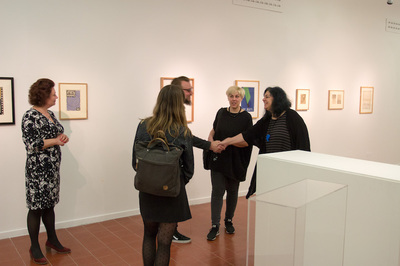
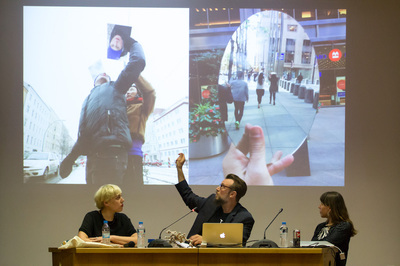
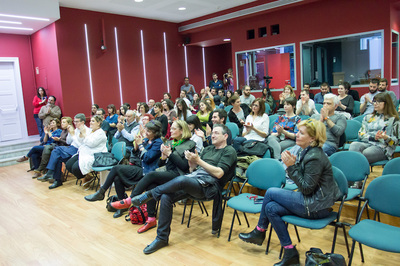
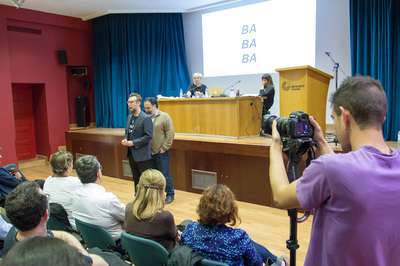
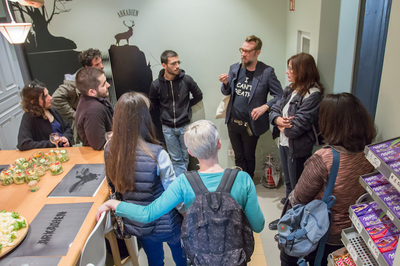
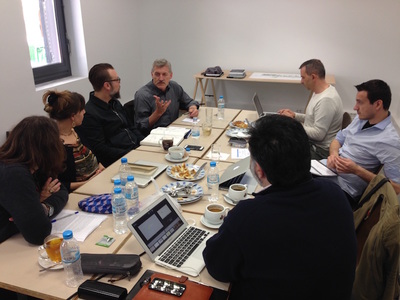
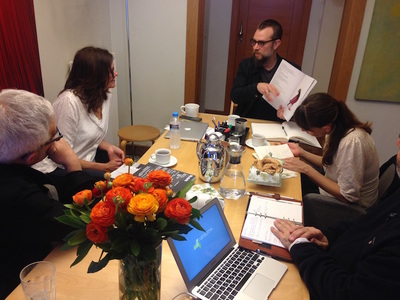
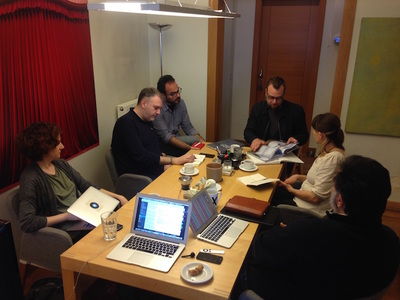
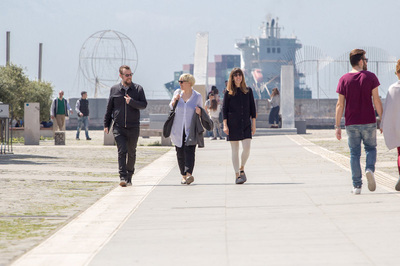
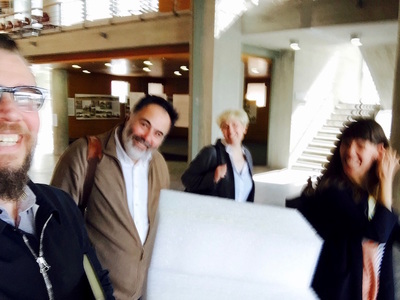
 RSS Feed
RSS Feed
